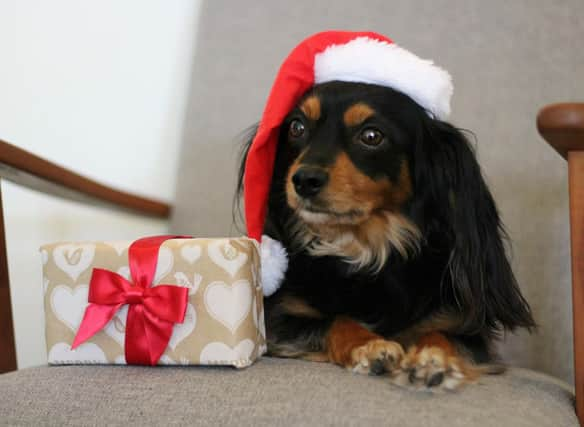Food is one of the most important parts of the Christmas celebrations for most families, but several items featuring on your plate could be harmful to pets if they get their paws on them.
Animal experts at financial website money.co.uk have researched which festive foods to keep away from your dogs, and which leftovers they can eat in moderation.
Salman Haqqi, pet insurance specialist at money.co.uk, explained: “As we enter the festive period, many of us will want to ensure our pets are able to join in on the celebrations. But it’s important to remember that they can’t eat the same foods as humans.
"Before feeding your dog anything which isn’t their regular food or treat, it’s worth doing your research on whether it will be harmful to your furry companion.
“To avoid mishaps in the home while you’re busy cooking Christmas dinner or opening presents, secure the area so your dog can’t reach surfaces and be sure to tell your family members the dangers of giving bits of their dinner away.”
So, here’s what to avoid, and what can be safely popped into the dog’s bowl as an extra treat.
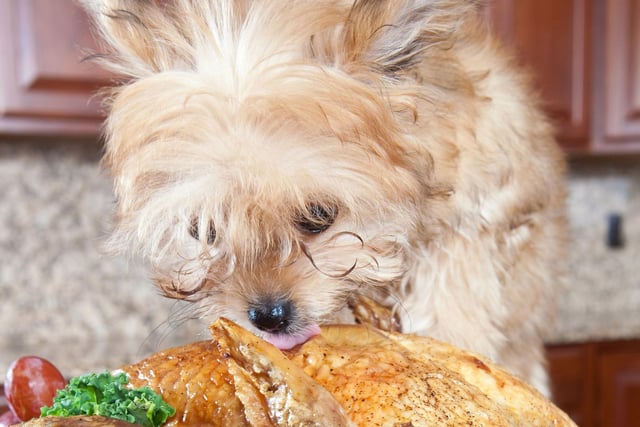
1. Stuffing
If you’re planning on eating sage and onion stuffing, hide it from your dogs (and cats). Onions, garlic, chives, shallots and leeks all belong to the allium plant. When ingested, it can damage your dog’s red blood cells which transports oxygen from the lungs to the body's tissues. They may experience an increased heart and respiratory rate, weakness and diarrhoea, with some symptoms not visible until a few days after. Photo: Canva/Getty Images
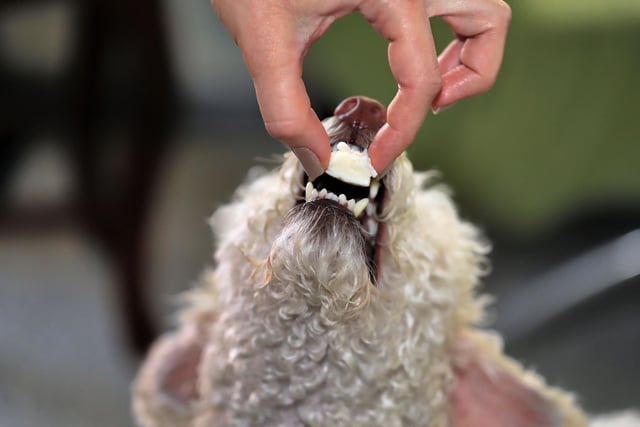
2. Blue cheese
Most dogs love cheese, but blue cheeses like stilton and Roquefort should be avoided due to a fungus called Roquefortine C. Dogs are sensitive to this substance which can cause high temperature, vomiting, diarrhoea and convulsions (muscle tremors and seizures). It’s also worth remembering that if you’re adding grapes to your cheese board, to keep these away from your four-legged friend as they can also cause problems if ingested. Photo: Canva/Getty Images
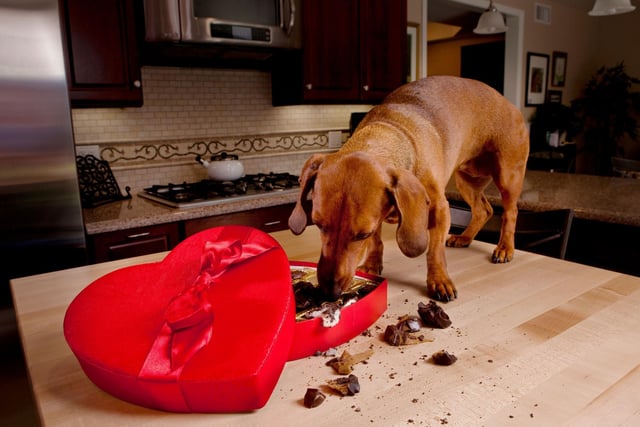
3. Chocolate
Despite being a favourite festive treat for humans, chocolate poses a real threat to our dogs. The chemical compound theobromine is a stimulant, like coffee for humans, and can be fatal depending on the size of your dog and the colour of the chocolate. The darker the chocolate, the higher the toxicity. So, hide your advent calendars and celebrations boxes in a secure location. Photo: Canva/Getty Images
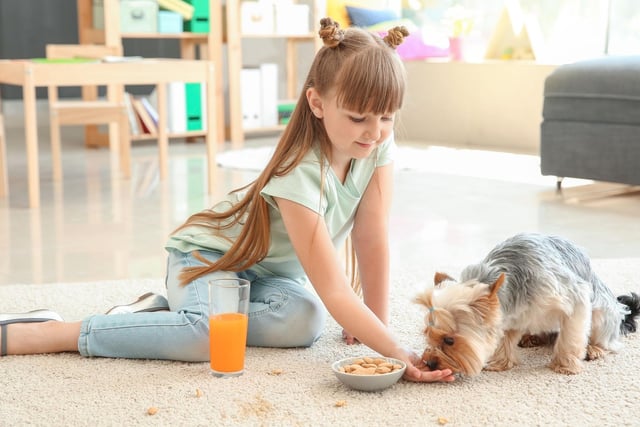
4. Nuts
Although not all nuts are toxic to dogs (aside from the high-fat content and choking hazards), ensure you keep macadamia nuts and black walnuts away from your dog’s paws. Macadamia nuts and black walnuts can result in a lethargic reaction, such as wobbly legs and stiffness, vomiting and seizures if consumed. Photo: Canva/Getty Images
